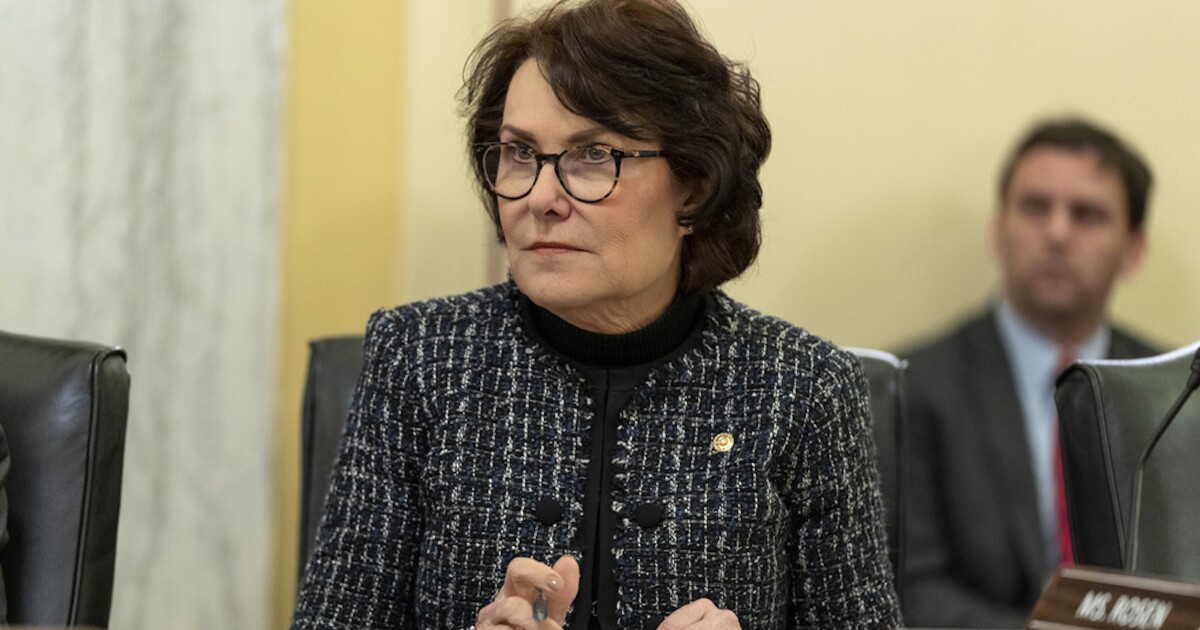

The National Republican Senatorial Committee accused Sen. Jacky Rosen (D-NV) on Friday of violating the federal law that requires members of Congress to report stock transactions.
Rosen, who is seeking a second term next year, is one of the NRSC’s incumbent targets as Republicans seek to retake the Senate. The accusation was based on two of Rosen’s Periodic Transaction Reports filed on April 19, 2017, when the Nevada Democrat was serving in the House.
SENATE COMMITTEE TO CONSIDER ADVANCING BIPARTISAN CHILDREN’S ONLINE SAFETY BILL
The disclosures show that Rosen traded $15,000 worth of stock in two companies, LogMeIn on Feb. 1 and Spectra Energy on Feb. 28 of that year. The LogMeIn trades were completed by her husband and had a notification date of Feb. 10, that PTR shows. The Spectra Energy transactions, meanwhile, were through a family trust belonging to her parents and had a notification date of March 6, the second filing reveals.
The STOCK Act, passed in 2012, requires members of Congress to report transactions exceeding $1,000 in stocks, bonds, commodities futures, and other forms of securities within 30 days of notification of a trade and 45 days of the exchange.
“Jacky Rosen broke federal law when she violated the STOCK Act, which is meant to stop Congress from insider trading,” NRSC spokeswoman Maggie Abboud said in a statement Friday. “Rosen is just another Washington insider who thinks the rules don’t apply to her.”
A Rosen spokesman pushed back on any assertion that the trades were not filed in short order, telling the Washington Examiner in a statement, “These were legal, automatic exchanges that the Rosen’s had no control over. They took place and were publicly reported more than six years ago.”
CLICK HERE TO READ MORE FROM THE WASHINGTON EXAMINER
Rosen’s disclosures show that her family trust is set up as a limited partnership in Nevada. The state revoked the partnership’s right to do business in Nevada in September 2019 after it failed to file its annual report. Rosen reported thousands in trades in the two years it took to resolve the trust issue, though filings show that those transactions appear to be apart from the trust.
The Nevada lawmaker was first elected to the Senate in 2018 after a single term in the House. She raised $2.7 million during the second quarter of this year in her reelection effort, her Federal Election Commission filing shows. She’s likely to face Sam Brown, an Afghanistan war veteran and the favorite to win the state’s Senate GOP primary, in the general election next year.




